- Author Jason Gerald gerald@how-what-advice.com.
- Public 2024-01-19 22:11.
- Last modified 2025-01-23 12:04.
Kidney stones are hard crystals that form in the kidneys and are composed of minerals and acid salts. Kidney stones can be difficult to pass and can cause extreme pain if they grow large enough. If you have experienced this disease before, understand how to prevent kidney stones from forming again because there is a 60-80% chance of it recurring.
Step
Method 1 of 3: Referring to the Type of Kidney Stone You Have
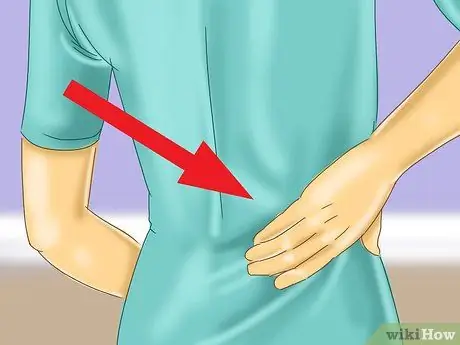
Step 1. Determine the type of kidney stone you have
Ask your doctor to identify the type of kidney stone you have. It is very important to know which type of kidney stone you have so that special measures can be taken to prevent it from forming again. Make sure your doctor checks your parathyroids to rule out possible factors that ease the formation of kidney stones.
- Calcium stones are caused by a buildup of unused calcium in the kidneys that is not completely excreted in the urine. Then, the collection of calcium fuses with other waste material to form a stone. The most typical and overall most common type of calcium stone is calcium oxalate. Calcium phosphate kidney stones are not very common, but they are more difficult because they tend to be larger in size with a harder structure, this makes them more difficult to treat.
- Struvite stones can form after a urinary tract infection and are composed of magnesium and ammonia.
- Uric acid stones are caused by too much acid in the body. Reducing meat consumption can help stop this type of kidney stone from forming. Uric acid kidney stones are commonly associated with gout, and respond to similar treatment.
- Cystine kidney stone formation is rare and tends to run in families. Cystine is an amino acid and some people inherit it in large amounts.
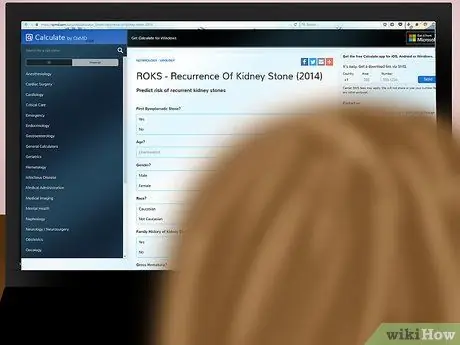
Step 2. Determine the risk of future kidney stones
You are at risk of getting kidney stones again because you have had them in the past. See if there are any risk factors you may not be aware of. Download the app at https://www.qxmd.com/calculate-online/nephrology/recurrence-of-kidney-stone-roks for a quick way to assess your risk of developing kidney stones. You can and should talk to your doctor more about your risk factors.
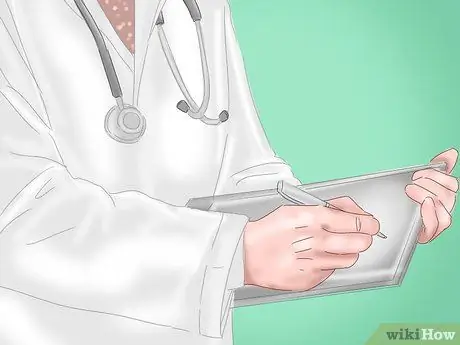
Step 3. Consult a doctor
Your doctor can help make a plan to reduce your risk of kidney stones recurring, depending on the type of stone you've had, your age, gender, and family medical history. The plan generally includes dietary changes, plenty of fluid intake, and in certain cases, medication or even surgery (but only in very specific cases).
Method 2 of 3: Using Food to Prevent Kidney Stones
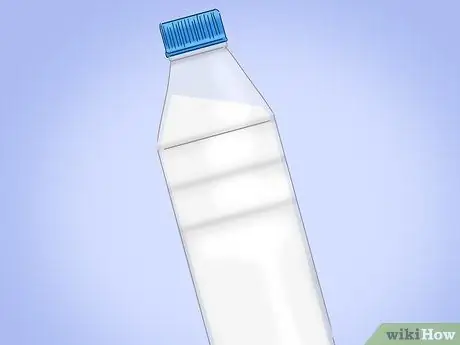
Step 1. Drink more fluids
Fluids help remove substances that cause kidney stone formation. Water is the best liquid choice. Water can help prevent kidney stones by keeping the kidneys clean without adding other elements such as sugar, sodium, or other ingredients contained in other drinks. Drink at least 10 235 ml glasses of water every day. Avoid caffeinated drinks as they can dry out the body instead of hydrating it. Urine should be excreted at least 1 L per day and should be slightly light yellow in color.
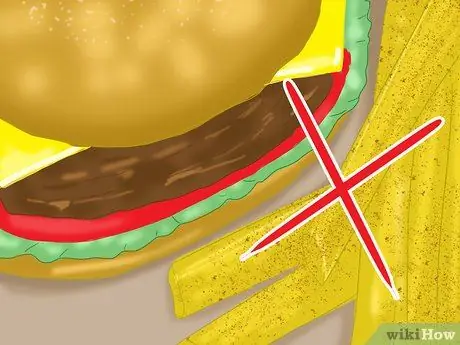
Step 2. Avoid salt
One of the main causes of kidney stones is concentrated urine. Salt can dehydrate the body, which promotes the formation of concentrated urine. If you consume salt, neutralize the effects by drinking a large glass of water afterward.
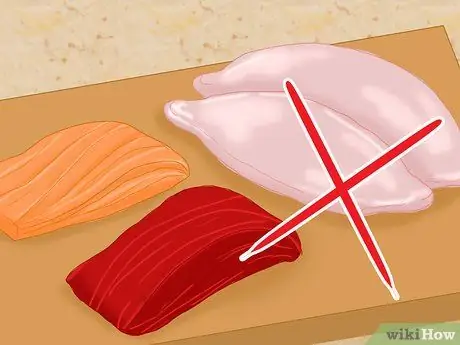
Step 3. Reduce meat consumption
Animal protein can cause urine to become concentrated, one of the factors that trigger kidney stones. Residual animal protein can pass into the urine and increase the chances of kidney stones forming.
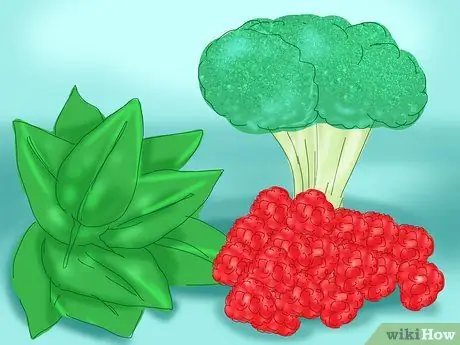
Step 4. Consume more fiber
Several studies have shown that insoluble fiber combines with calcium in the urine and is excreted in the feces. This helps reduce the amount of calcium remaining in the urine. Sources of fiber-rich foods include:
- Whole grains such as oatmeal, bran, or quinoa
- Prune fruit and juice
- Leafy greens such as spinach, chard, or kale
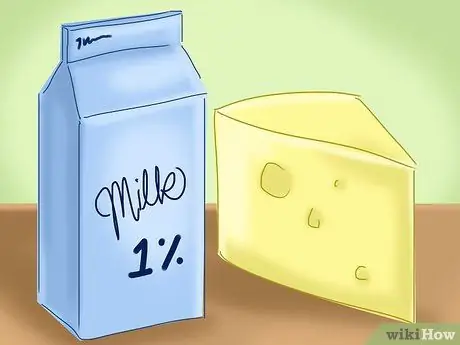
Step 5. Watch your oxalate intake if you have ever had calcium oxalate kidney stones
The best way to deal with this in your diet is to eat both calcium and oxalate in the same meal. In this way, calcium and oxalate will bind together in the stomach, not waiting for the kidneys to process them and possibly turning them into kidney stones.
- Spinach, chocolate, beets, and rhubarb are foods that are rich in oxalates. Beans, green peppers, tea, and peanuts also contain oxalates.
- Milk, cheese, calcium-fortified orange juice, and yogurt are good forms of calcium and can be combined with oxalate-rich foods.
Method 3 of 3: Using Medicines and Surgery to Prevent Kidney Stones
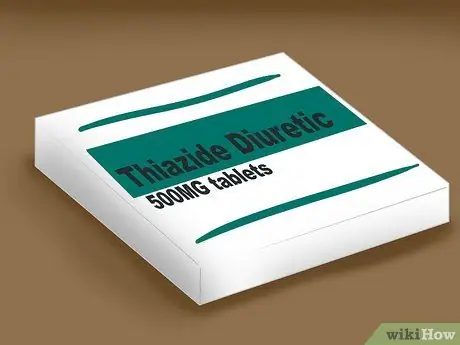
Step 1. Take medication for calcium stones
Prescription drugs that are most often recommended are thiazide diuretics or supplements containing phosphate. Hydrochlorothiazide (a type of thiazide diuretic) suppresses the amount of calcium released into the urine by helping to retain it in the bones and reducing the chance of calcium kidney stones forming. These medications work best when salt intake is also reduced.
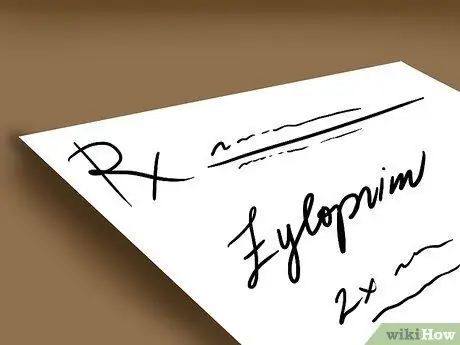
Step 2. Ask your doctor for prescription drugs to reduce uric acid kidney stones
Allopurinol (Zyloprim, Aloprim) keeps urine alkaline and reduces uric acid levels in both the blood and urine. Sometimes, Allopurinol and similar alkaline-forming agents can be combined to completely destroy uric acid kidney stones.
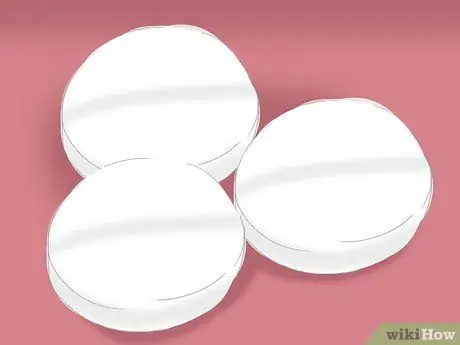
Step 3. Take antibiotics to treat struvite kidney stones
Taking antibiotics for a short period of time can prevent the formation of bacteria in the urine that causes struvite stones. Doctors usually won't recommend taking antibiotics for long periods of time, but short periods can help significantly.
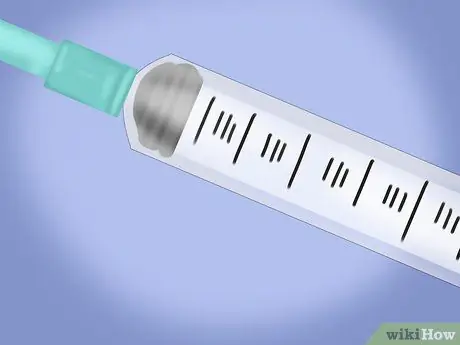
Step 4. Shrink cystine kidney stones by alkalizing urine
This treatment usually involves a catheter that will inject an alkaline-forming agent into the kidney. Cystine kidney stones generally respond well to this treatment, especially if accompanied by drinking large amounts of water, both day and night.
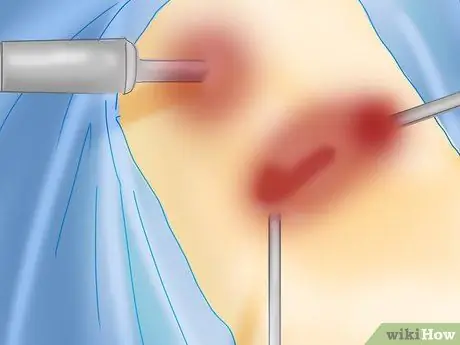
Step 5. Control the formation of calcium stones with surgery
Choose this step only if you have hyperparathyroidism, or kidney stones caused by the parathyroid glands. Calcium stones can be dangerous if you have hyperparathyroidism. Removal of one of the two parathyroid glands in the neck usually cures the disease and excludes the possibility of developing kidney stones.






